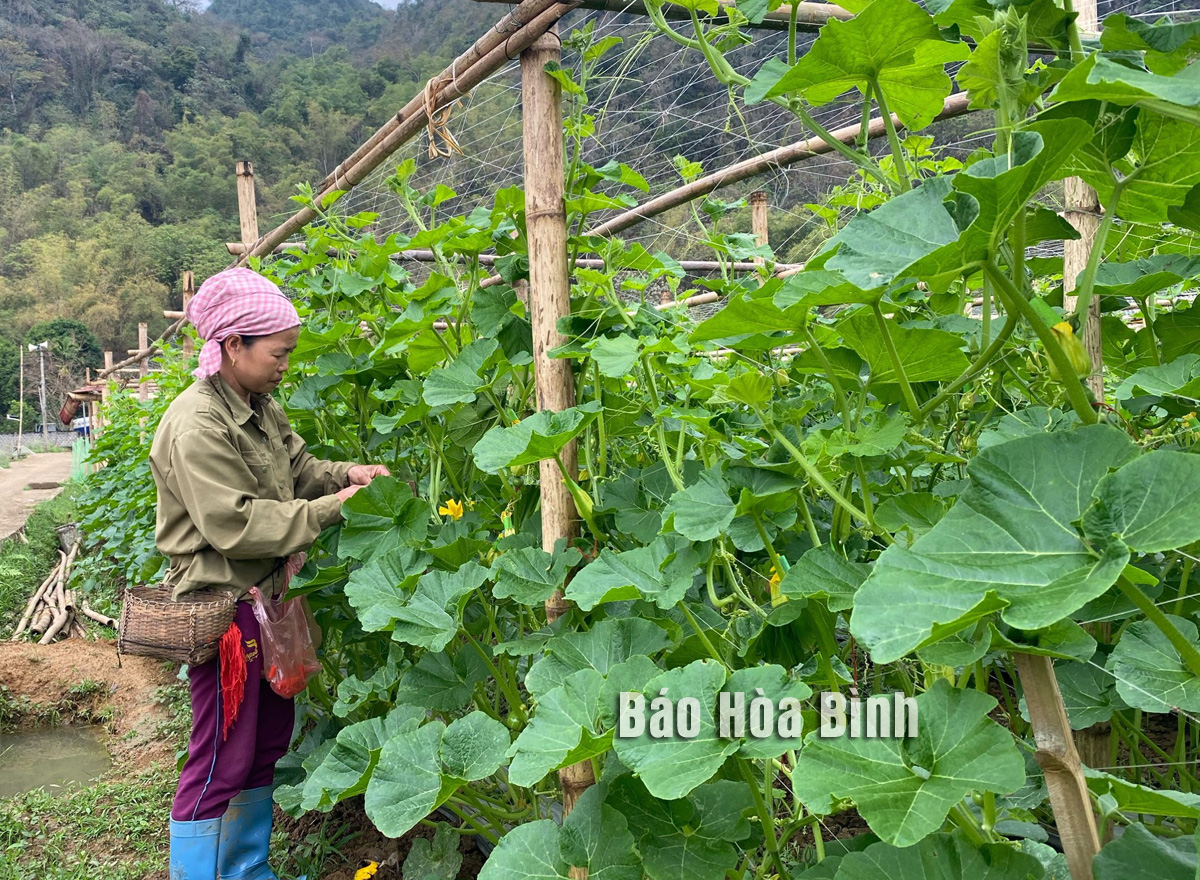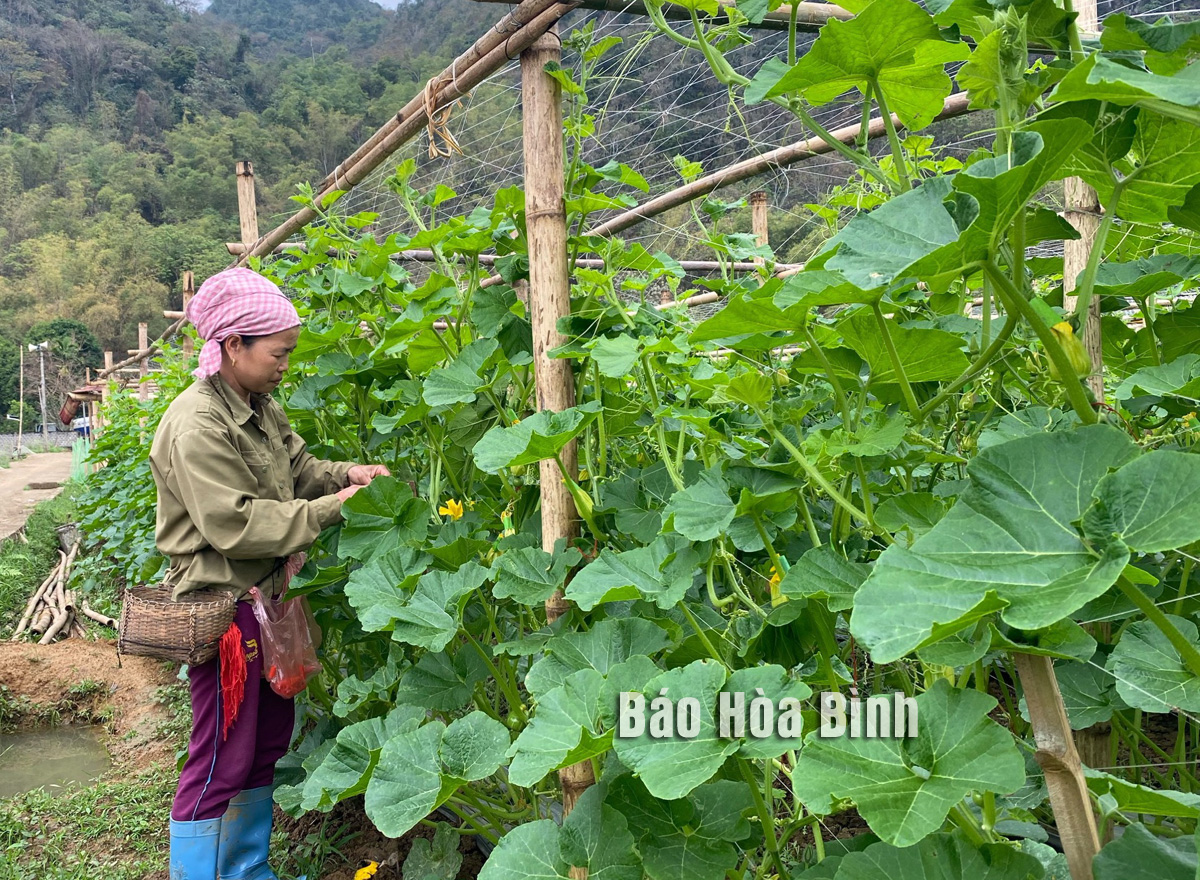
Various emulation movements have been rolled out in Mai Chau district of Hoa Binh province over the past years, encouraging local farmers to promote business and production for sustainable poverty alleviation as well as restructuring of crops and livestock for better incomes. The movements have attracted enthusiastic response from members of the district farmers’ union, particularly ethnic people.
A farmer in Van
Mai commune of Mai Chau district has gained better income thanks to crop
restructuring.
Ha Van Sem, a Thai ethnic minority man in Na
Chieng hamlet, Na Phon commune, was named as one of the 100 most excellent
farmers in the country in 2023. He began his tourism business in 2017 then
decided to expand to high-end resort model by building more stilt houses and
facilities to serve tourists with concessional loans from the local
authorities. He now owns a spacious homestay with quality accommodations that
fetch 2 million VND (78.6 USD) per day and night for each stilt house.
Sem said thanks to support from the local
sectors, especially the farmers’ unions at all levels, he had opportunities to
engage in several vocational training courses on tour guides, restaurant
management, cooking and market demand.
During 2021-2023, his homestay gained an average
of 1.3 billion VND in revenue and up to 800 million VND in profit a year.
Over the past time, the district farmers’ union
has worked closely with its members so as to provide them with rational support
measures for their business development. It has encouraged local farmers to
join the excellent household business movement and the emulation movement to
build new-style rural areas.
The farmers’ unions at all levels have joined
hands with competent authorities to arrange training courses on the transfer of
the state-of-the-art science technology to members, as well as field trips to
farms with outstanding agricultural models, while supporting the farmers with
capital goods and concessional loans.
With the movement of excellent farmers with role
models of production and business put in place, many farmers have applied
technological advances into production, helping them gain up to 1 billion VND
in revenue a year.
According to Chairman of the district farmers’
union Pham The Anh, many good economic models have been developed since the
movement was rolled out, helping to improve the livelihoods of the ethnic
minority people and shortening economic development gap between areas in the
district.
The emulation movement "Hoa Binh joining hands to build new-style rural areas” has been widely spreading, becoming a driving force that motivates the localities to renew rural landscapes and improve the material and spiritual lives of the residents. In this movement, the people play a central role-both as the main implementers and direct beneficiaries of its outcomes.
In response to the global digital revolution, Hoa Binh Newspaper is transforming itself into a modern and multi-platform media hub, blending cutting-edge technology with a restructured newsroom and a new generation of tech-savvy journalists.
Hoa Binh province’s Association of the Elderly recently held a conference to review the project on expanding the inter-generation self-help club model until 2025.
In a move to implement Resolution No. 57-NQ/TW, issued on December 22, 2024 by the Politburo, which targets breakthroughs in science-technology development, innovation, and digital transformation, the Hoa Binh provincial Department of Health has issued a plan to roll out the "Digital Literacy for All” campaign within the local health sector.
An Nghia Commune (Lạc Sơn District) is one of the communes that achieved the tha standard of the national new rural area in 2018. Entering a new development phase, the commune is now trying to meet the criteria for the advanced new rural development. With the strong political will and the public consensus, the commune is gradually overcoming the challenges to reach this goal, aiming for the sustainable development.



